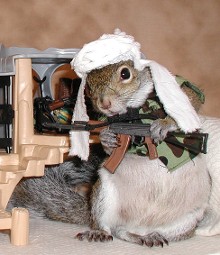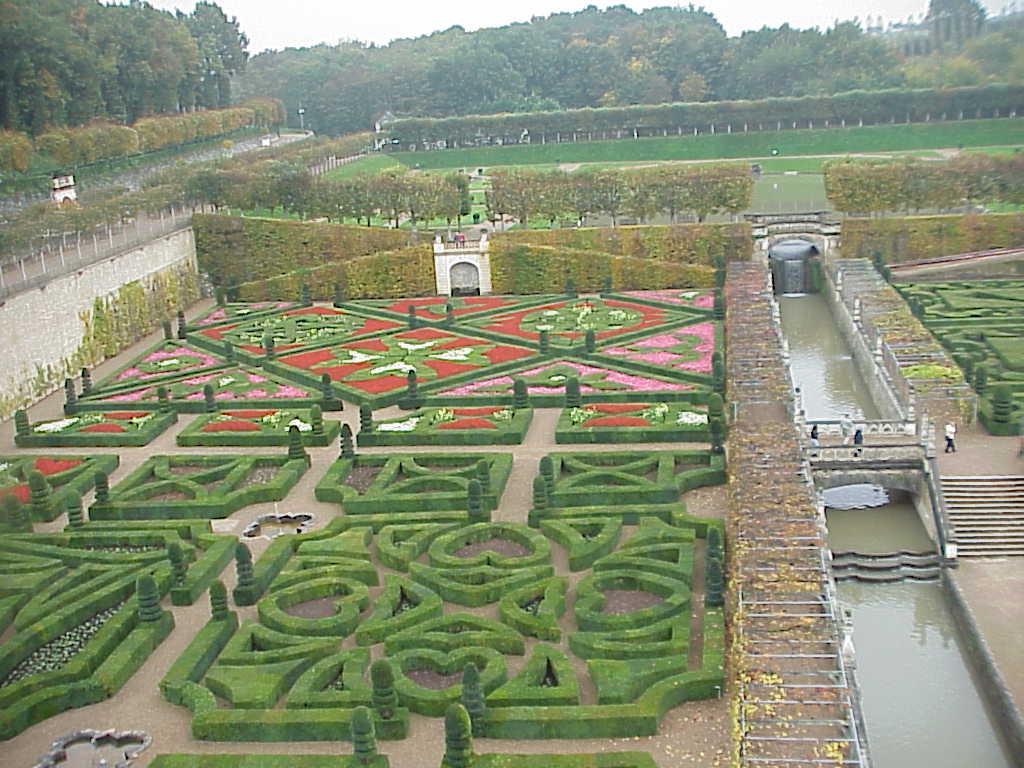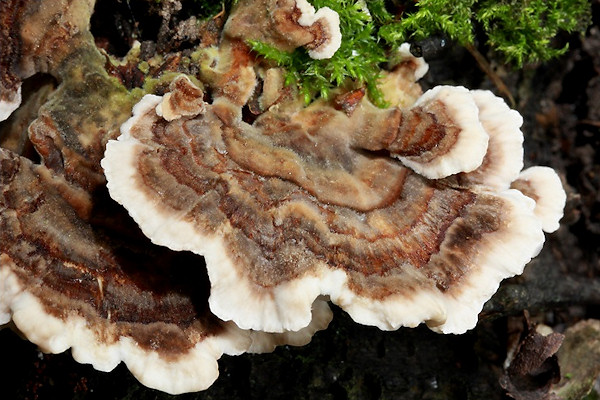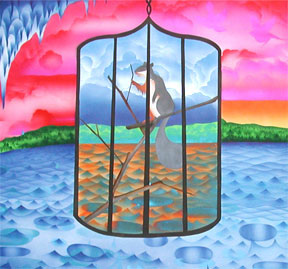He went on to argue against the idea, but I missed the redemption of the African Violet because I was stuck spinning in the introduction, saying to myself, "African Violets are for grandmas? Now there are fashions in plants?"

(This violet is called "Absinthe House", according to the African Violet Society of America.)
It shouldn't surprise me. I know that every field has its fashions. There are probably fashions in taxidermy. Some squirrel stuffer is probably saying to his younger brother right now, "I was stuffing squirrels way before everyone else started doing it. You know, before it was cool."

The good news is that this squirrel is not dead. The bad news is that he probably votes. Sugarbush Squirrel.
But hearing it said that way, as an offhand statement of fact preceded by an assumption that the general public was in agreement on African Violets...It struck me as a sign of things gone terribly wrong. It brought to mind the impending apocalypse. Or something. I felt a squirm in the pit of my stomach that reminded me of the first time I heard tuna melts referred to as white trash food. I love tuna melts, and resent aspersions cast upon them, but I have no specific attachment or revulsion towards the African Violet. What galled me is that African Violets are nature. And nature, I would like to think, is not about trying to make us look young or old.

This violet is called "Edgy".
Nature is fundamentally not about us. It is what it is. And while we've always used it as a means of expression, what we usually express is a sense of ourselves as godlike creators who have tamed the noble savage that is the natural world.

Exhibit 1

Exhibit 2
I can understand the impulse to control nature. We are, after all, puny furless creatures who frequently get killed by weather, fire and disease- but it does seem to me that the way we use symbols to define ourselves has gotten entirely out of hand when we start talking about what our houseplants say about us.
Because if our houseplants are talking, what on earth does our dinnerware say? We know our clothes talk about us (God help the person who wears sweatpants on a first date), but do we know what our plumbing says? Are those below the sink s-bends completely passe?
I have a problem with the fact that I know the new trend in sinks. I know what designer I'd like to have made my tape dispenser. I know that the designer who makes the really ugly clothes is actually good-ugly, even though it looks just ugly-ugly, because it's funny-ugly, and signals being really super in-the-know. I do not want to be a walking catalog. I think it's creepy, and I think it's demeaning.

I think we're commodifying ourselves: that we have so little time and so few forums in which to develop a real sense of value that we annex everything around us into a vast whirling theater of identity. It's very 1980's, very Jenny Holtzer, very Barbara Kruger. The same part of me that thinks that the African Violet fashion is a sign of the coming apocalypse thinks that we've developed a post-capitalist language that uses objects as a stand-in for actual identity. Want to look smart and artistic? Have I got the sink (neighborhood, house, garden) for you.
It's shorthand for real relationships, for the development of real ways to mediate identity. We use our objects to read things about each other, and as long as we all agree that there is a language of objects and that they do reflect character, or at least certain aspects of it, the system works. That might be well and good, except that we seem to be going, dare I say, apeshit about this lately. We're like little kids learning that blue is for boys and pink is for girls- but we're talking about plants. And What Your Food Says About You.

And really- must we characterize everything in terms of ourselves? Can't we leave some parts of the world free of our synaptic impulse towards identity politics? Some place where things can be left wild, without interference, alone and symbol-less? There should be an identity free zone. Something like Antarctica- a place where rabbit and turkeys can live in peace without people throwing holidays and assumptions about their fertility and dumbness at them...

Turkey Tail Fungus. It's the new black.

No comments:
Post a Comment